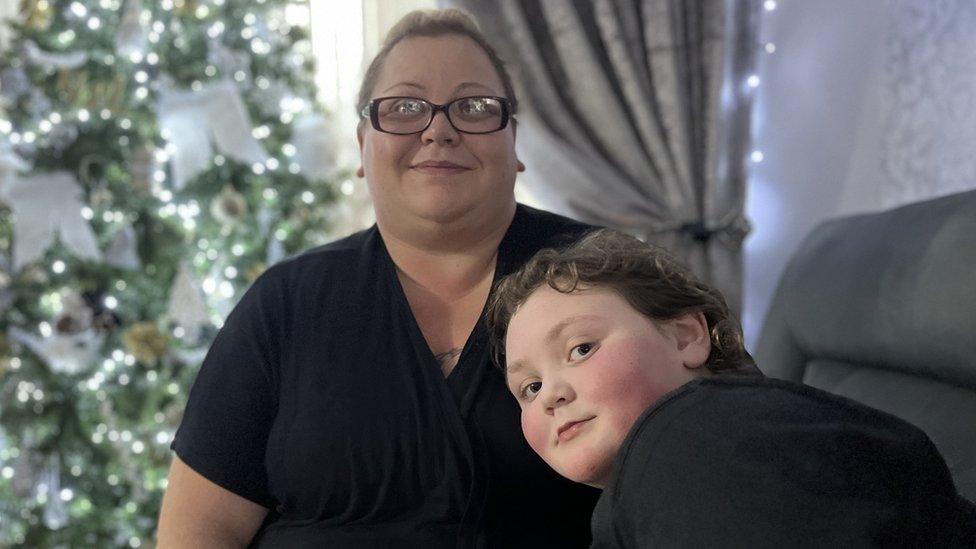Family moves 180 miles for special-needs nursery space
- Published
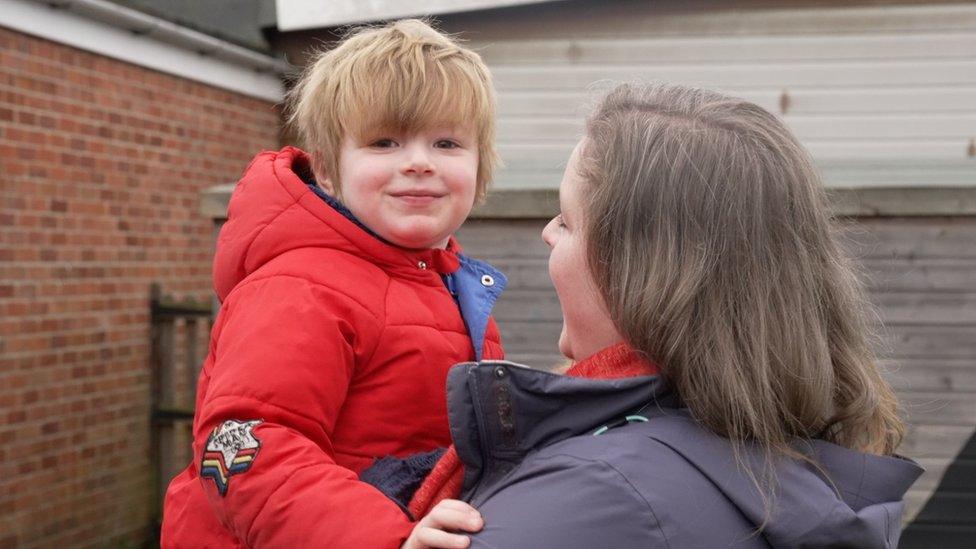
Four-year old Joe's family say their world fell apart when their son's nursery said it could no longer look after him
There will be fewer nursery spaces for children with special education needs and disabilities (SEND) after the expansion of funded hours in England in April, councils and charities warn.
A third of councils expect fewer places to be available, a survey suggests.
The Department for Education (DfE) says it is phasing in its childcare offer so the sector has time to prepare.
One family told the BBC they had to move 180 miles to find a special-needs place for their four-year-old.
Playing differently
"Joe is amazing," his father Craig says. "He's the happiest boy that I've ever met. He's inquisitive. He's curious.
"He struggles in the world - but he has his own way of finding his way".
At Joe's second birthday party, his parents noticed he was playing differently to the other children.
Because of the pandemic, he had not seen a health visitor who would have reviewed his development.
"For the longest time, we just thought we were bad parents," Craig says.
"We just thought we are not very good at this. We're not able to help Joe talk."
While searching for a nursery in Greater Manchester, Craig and his wife Fiona say, every time they mentioned Joe had SEND, that he was non-verbal and had a global development delay, they never had a callback or were put on a waiting list.
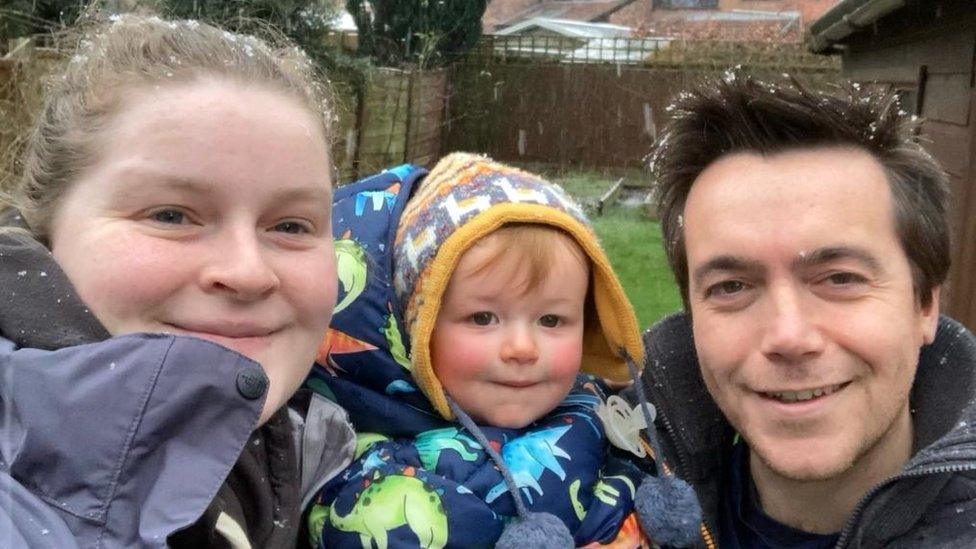
Joe's parents noticed he was playing differently to other children at his second birthday party
They eventually found a place - but in June, were devastated to hear the nursery could no longer support Joe's needs.
"We were almost totally on our knees and didn't know what to do," Craig says.
When visiting relatives in Newbury, Berkshire, the Jenkins decided to visit a nursery for children with SEND, run by the charity Dingley's Promise.
The nursery uses a mix of fundraising, government-funded hours and grants to have a higher ratio of staff to children than normal.
After one visit, Joe's parents decided they needed to do whatever it took "to get him in a place like this".
Demand for childcare places is rising due to the government's plan to offer funded hours to younger children, but the number of pre-school children with special education needs and disabilities is increasing too.
According to government figures, the number of three- and four-year-olds eligible for 30 hours of childcare who have SEND has risen from 76,418 (6.3%) in 2021 to 95,589 (8%) in 2023.
Only one in five councils has sufficient availability for children with SEND currently, and many are concerned the situation will get worse, the managing director of Coram Family and Childcare, Ellen Broome says.
In England, 92 out of 153 responded to Coram's annual survey of the costs and availability of childcare.
Its full research will be published in March but the charity has shared some initial findings with BBC News:
60% are "confident" or "very confident" there will be enough places to meet demand in April, when the expansion of funded hours begins
but that proportion dropped to just 27%, when asked about September 2024
and only 12% for the September 2025 expansion, when all children of working parents will be eligible for 30 hours during term time from the age of nine months
Councils are worried about "the additional spaces that need to be created in the system" and "the impact that will have on how many providers are able to offer places with SEND", Ms Broome adds.

Charities say there will be fewer places for children with SEND, following the childcare expansion
Councillor Louise Gittins, who chairs the Local Government Association's Children and Young People Board, agrees councils face "significant challenges" managing the ever-increasing rise in demand for support for children with SEND.
And it is "vital" the government's planned recruitment drive to tackle staffing shortages succeeds.
The childcare sector is struggling with severe workforce challenges and reports of underfunding.
Dingley's Promise Chief Executive Catherine McLeod says many settings feel they lack the resources, staffing and funding to support children with SEND "and therefore, they're turning children away".
Those "who used to be brilliant at inclusive practice" are now saying: "We can't do it any more," because they are having to fund the provision out of their own money when the children first arrive.
Ms McLeod wants the system, especially how disability access funding is applied for, made simpler.
"We have to improve the way it is funded, otherwise children will continue to be turned away," she says.
Responding to questions in the House of Commons on Tuesday, Children's Minister David Johnston said his team were looking into reports of children with SEND being turned away from early-years settings.
The DfE says:
It is "committed to ensuring that children with SEND are able to benefit equally from the rollout"
Dedicated additional SEND funding, such as the Disability Access Fund, is increasing
It is training up 7,000 early-years special educational needs coordinators
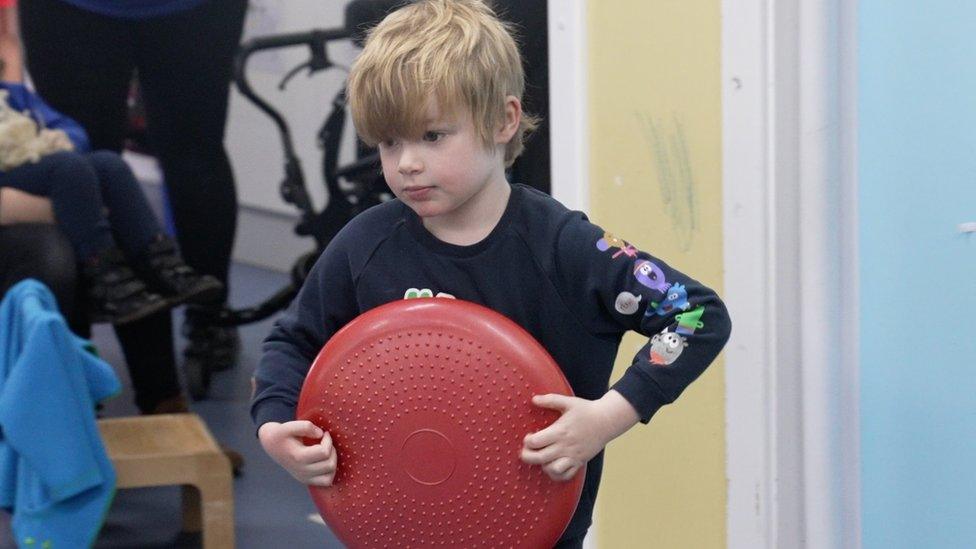
Joe's nursery in Newbury has seen" huge progress" since he arrived, in September
After three months in his new nursery, Joe is coming on "leaps and bounds" and the staff are helping him settle into a mainstream setting in the afternoons.
"He was very internally focused - and now, he wants to explore, he is much more engaged with the world and it's just so wonderful to see," Fiona says.
But she and Craig want to see more SEND places for children like Joe.
"I know how difficult it was to just keep going with the day to day, let alone having to fight [for a nursery place] on top of that," Fiona says.
"I can't state enough how vital these services are. Everybody needs to have access to this."

Are you travelling long distances for childcare? Are you pregnant and on a nursery waiting list? Are you struggling to extend childcare hours for your toddler? Share your experiences by emailing haveyoursay@bbc.co.uk, external.
Please include a contact number if you are willing to speak to a BBC journalist. You can also get in touch in the following ways:
WhatsApp: +44 7756 165803
Tweet: @BBC_HaveYourSay, external
Please read our terms & conditions and privacy policy
If you are reading this page and can't see the form you will need to visit the mobile version of the BBC website to submit your question or comment or you can email us at HaveYourSay@bbc.co.uk, external. Please include your name, age and location with any submission.
Related topics
- Published17 November 2023
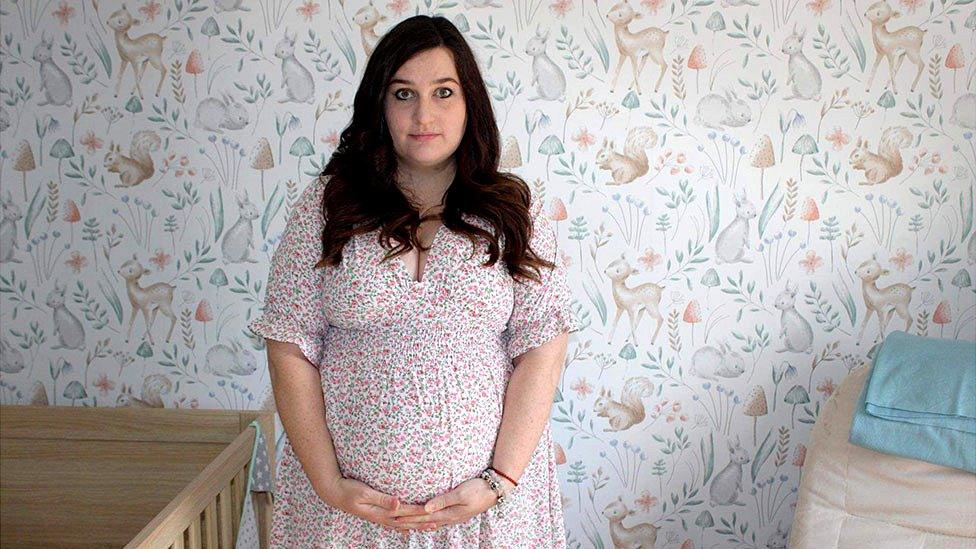
- Published14 December 2023
